New Bookapalooza
[by Mark Safranski, a.k.a. “zen“]
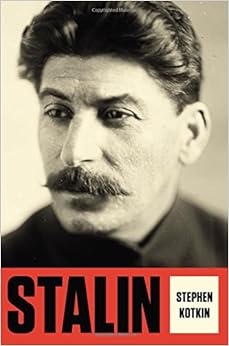

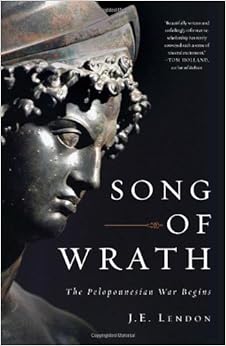
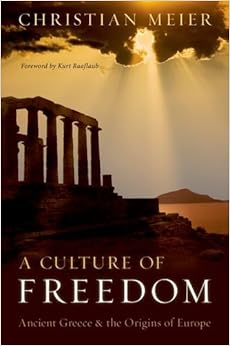
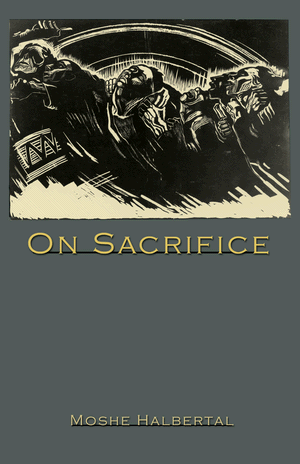
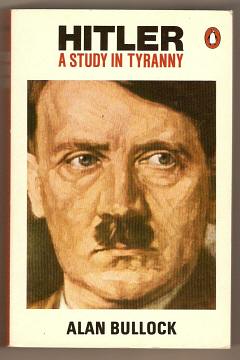
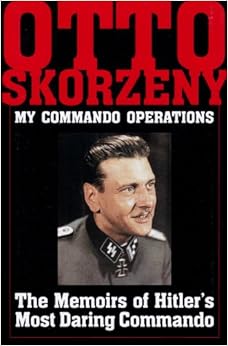
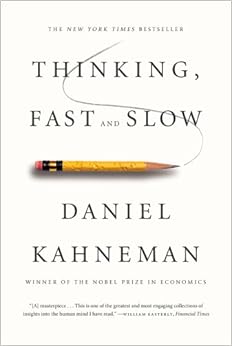
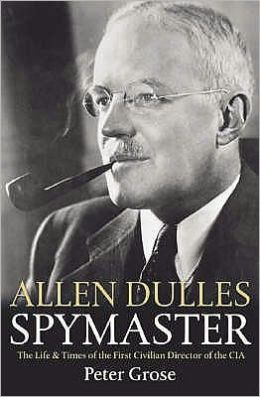

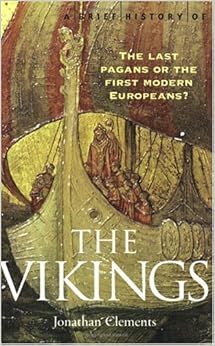
Stalin: Volume I – The Paradoxes of Power by Stephen Kotkin
World Order by Henry Kissinger
Song of Wrath: The Peloponnesian War Begins by J.E. Lendon
A Culture of Freedom by Christian Meier
On Sacrifice by Moshe Halbertal
Hitler: A Study in Tyranny by Alan Bullock
My Command Operations by Otto “Scarface” Skorzeny
Thinking Fast and Slow by Daniel Kahneman
Allen Dulles: Spymaster by Peter Grose
The Road to Terror: Stalin and the Self-Destruction of the Bolsheviks 1932-1939 by J. Arch Getty and Oleg Naumov
The Vikings by Jonathan Clements
An unusually large book-buying spree on my part, fueled in part by a stash of Xmas gift cards.
Reading Thinking Fast and Slow already and will probably start the Kotkin book on Stalin tomorrow and I have already finished On Sacrifice, which I will review elsewhere. I’ve resolved to get more books read this year as 2014 was kind of a nadir in that regard (more on that in another post) by my previous standards and looks rather woeful next to T. Greer’s list.
Scott Shipman was instrumental in my picking up World Order, as he convinced me that after I had slogged through all the volumes of Kissinger’s memoirs that he still had something to say.
What new titles have you acquired?



January 6th, 2015 at 5:06 am
Currently reading William McNeill’s Venice: The Hinge of Europe, 1081-1797. It is very good.
I only received one book as a Christmas present this year. It is James Gladstone, The Man Who Seduced Hollywood: The Life and Loves if Greg Bautzer, Tinseltown’s Most Powerful Lawyer. It is an astonishing story. Bautzer was a kid from nowhere Who became a smashing professional success as a lawyer, both as a litigator and a dealmaker, and also had many very famous and beautiful Hollywood actresses as his girlfriends and mistresses over the years. A young friend who is a new and so far quite successful attorney in Los Angeles gave me the book as a gift. His career may yet follow a stellar trajectory like Bautzer’s.
Moving from the materialistic and carnal to to the elevated and spiritual, I am slowly working my way through The Heart of Newman, A collection of excerpts from the writing of John Henry Newman, edited by Erich Pryzwara, S.J. Newman was a great mind, a great soul, and a great writer. He was a Victorian who was typical of the best writers of his age. He was learned beyond what we can even conceive of today. His writing is dense and requires concentration. Small portions, shoot well, is the way to ingest Newman’s writing.
January 6th, 2015 at 3:45 pm
This year I received only five books (one was a coffee table book), two on Theodore Roosevelt (Edmund Morris’ first volume and The River of Doubt), and The Envoy by Kershaw (of Bedford Boys fame). I read the Morris bio straightaway, and it is quite good. I’m no fan of TR as president, but as a man one can’t help but admire his grit. The last book was On the Map by Garfield—seems a bit wacky and off-beat, but I’m looking forward to it (the folks who gave it to me have a knack for titles like this).
.
Having found most the 54 volume Britannica Great Books of the Western World in a trash heap last year, I finally got around to grazing the first three volumes. Volumes 2 and 3 discuss the “great ideas” of the West (104 to be precise) and I decided to read at least three per week. So far I’ve read Temperance, Habit, Vice and Virtue, and Happiness—these are splendid essays and a wonderful diversion from the normal fare.
.
Read The Hobbit just before Christmas and a bit embarrassed it has taken me so long. I ordered The Lord of the Rings series and anxiously await volume 1 (due any day).
.
Re-reading Benjamin Graham’s classic The Intelligent Investor, grazing Bloom’s essays on Shakespeare (and a few of the plays—Henry IV as a start), and too many books on the South China Sea…
.
A post on my top three of 2014 has been in the hopper since November—will endeavor to get it out.
.
One last note on Kissinger’s book—this title is much more approachable than his memoirs. To be sure there are hints of ego that remain (this is Kissinger, after all), but provides his characteristic framework of pragmatic statesmanship. Also, Charles Hill was the inspiration…
January 6th, 2015 at 7:13 pm
I’m re-reading Lord of the Rings. With all of the Hobbit hullabaloo, I was getting an itch to revisit Tolkien.
I just finished Albion’s Seed over the holidays, thanks to Lex and James Bennett.
It was long, but worth it for providing a lot of insight into how Americans developed. I have to admit I skimmed some with the Puritans and Quakers, but still kept careful attention to the notes which provide a wealth of information.
I just ordered ‘Transatlantic Rebels: Agrarian Radicalism in Comparative Context’ edited by James Scott, about how agricultural technology & trade networks also transferred social and political ideas. I’m not sure if it’s going to be too political for my tastes or not, but for a $5 paperback I figured it was worth a shot.
.
I like to alternate subjects so earlier in December I read a math book called “New Horizons in Geometry”, and sometime I’m going to fit in a science book called ‘Into the Cool: Energy Flow, Thermodynamics, and Life’.
.
I also just randomly picked up Pavel Tsatsouline’s Kettlebell Simple & Sinister and a couple kettlebells. I have to come up with new workouts because of recurring painful tendonitis. So far I’m still standing, so it appears to be coming along.
January 7th, 2015 at 12:02 am
Read the presidential diaries (volumes 1, 2, 3, & 4) of James K. Polk.
Currently reading James Madison’s Journal of the Federal Convention. More readable and, in many respects, more useful than The Federalist Papers.
I second Scott’s recommendation of The Intelligent Investor. Always a good read. Especially since Wall Street ignores 99% of it.
January 7th, 2015 at 1:25 am
LCR,
.
The Graham book has paid for itself, though I’m not nearly as assiduous with this portion of life as I should be. I’ve read parts (rather large chunks) of Madison’s Journal–but also the “Secret Proceedings” book. The two make a nice contrast in style and intent. As for the Polk diaries, I’ve added to the antilibrary.
.
Grurray, The geometry books looks intriguing, but is a bit pricey.
January 7th, 2015 at 7:15 am
Lex – I went and read the Wikipedia entry on Newman. had no idea that a Cardinal could also be a mere deacon – was Newman unique in that regard? (not holding a bishopric or archbishopric)
.
Scott and Grurray – Tolkien was the fictional author who influenced me most – BTW TR’s autobiography is a fun (if repetitive) read. He was a marvelous character who tried to live up to what he believed
Good catch, Lynn!
January 7th, 2015 at 5:06 pm
Scott/Zen,
I don’t usually read fiction, but Tolkien is the exception. I’ll have to check out the autobiography. I was perusing his letters recently.
.
The big point of the math book, among other things, is that they can use basic geometric concepts to replace calculus. They call it ‘proof without words’, which has some appeal by lessening the abstraction.
The book is long and dives into a lot of esoteric pure geometry. I read it all, but I’m kind of a nerd for stuff like that. A quick overview is here:
http://www.futilitycloset.com/2014/11/21/visual-calculus/
and a more detailed round up is here:
http://www.its.caltech.edu/~mamikon/VisualCalc.html
That may be all you need, but
.
it wasn’t all pure math, and there were a few practical applications. One was a solution to the anti-missile problem:
http://mathworld.wolfram.com/TrawlerProblem.html
they tackle it here (pg 7):
http://www.mamikon.com/USArticles/Tanvolutes.pdf
January 7th, 2015 at 8:19 pm
Mark, my understanding is Newman was a priest, not a deacon or a bishop.
The sacrament of holy orders has three degrees: deacon, priest and bishop. It is a sacramental character to be any of the three. The sacrament actually changes the soul of the person receiving it, and the capabilities of the person are changed.
Being a cardinal is a political title, in which the person holding the title has a role in governing the Church, including electing the Pope. Incidentally, Archbishop is a political title not a sacramental one. It designates a bishop who has other bishops subordinate to him.
I don’t thing there is any reason a deacon could not be a cardinal, or possibly even someone who is not ordained at all. It may be that there have been monks or abbots who were not even ordained who were cardinals. I am not sure.
Certain bishoprics are customarily considered to be so important and influential than their bishop (usually an archbishop) is almost routinely made a cardinal. Chicago has for a long time had a Cardinal Archbishop, for example.
January 7th, 2015 at 9:20 pm
Hi all:
.
I was hoping or an excuse to join this terrific thread!
.
Newman was, as Lex says, “a priest, not a deacon or a bishop” — but his rank within the College of Cardinals was that of a Cardinal-Deacon, specifically that of Cardinal-Deacon of St. George in Velabro, a deaconry currently held by Gianfranco Cardinal Ravasi.
.
And I expect there’s a better way to phrase that, I just don’t know the conventions!
January 7th, 2015 at 9:48 pm
Anyway, my books of the moment (and btw, my moments tend to stretch into months):
.
Heather S. Gregg of the Naval Postgraduate School’s Department of Defense Analysis, The Path to Salvation: Religious Violence from the Crusades to Jihad — densely info-packed, the product of a very focused and widely-read mind whose interests happen to correspond closely with my own. A pleasure.
.
Jonathan AC Brown of Georgetown, Misquoting Muhammad: The Challenge and Choices of Interpreting the Prophet’s Legacy — simply brilliant, indeed the richest book on Islam and its theology I’ve ever read, immensely imprressive.
.
Franklin D. Lewis, Emory University, Rumi: Past and Present, East and West — again, a simply superb work of scholarship, bringing us far closer to the world and work of the great poet and mystic than the pop versions of his poetry currently hitting the charts.
.
Gil Bailie, Florilegia Institute, Violence Unveiled: Humanity at the Crossroads — a powerhouse of a book, forcing me to rethink Christianity’s role in the evolution of culture, a book with real muscle.
.
Boom!
January 8th, 2015 at 2:38 am
Currently reading: George Washington’s Indispensable Men: The 32 Aides-de-Camp Who Helped Win American Independence by Arthur Lefkowitz
.
A few recent buys:
.
A Poet’s Glossary by Edward Hirsch — This is great to keep on your mobile device to read entries when you only have a few free minutes.
.
Successful Strategies:Triumphing in War and Peace from Antiquity to the Present by Murray and Sinnreich
.
Embattled Rebel: Jefferson Davis as Commander in Chief by James McPherson
.
The Republic of Imagination: America in Three Books by Azar Nafisi
.
Blue Ravens (novel) by Gerald Vizenor — Tells the story of two Native American brothers who fight in WW1, their experience returning to their reservation, then their return to Paris.